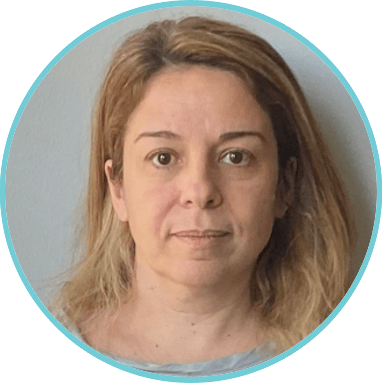

Dr. Maria Kokkori
Associate Conservation Scientist
Department of Conservation Science, Art Institute of Chicago
Maria Kokkori is associate scientist in the department of conservation and science at the Art Institute of Chicago and teaches the UChicago’s Suzanne Deal Booth Seminars in Conservation and Conservation Science. She received her Ph.D. from the Courtauld Institute of Art in London, following advanced degrees in painting conservation and material science at The University of Cambridge. She completed a postdoctoral fellowship at the Courtauld Institute and during 2009-2011 she was a postdoctoral research fellow of the Malevich Society in New York. Maria Kokkori works on early twentieth-century European art, with a special interest in Russian modernism, the materiality of art, and the intersections among art, science and technology. Her research and teaching focus on artists’ materials and techniques, the application of new methods for object-based studies, material properties and technologies, color theories, and artists as producers. Her research has been supported by the Courtauld Institute of Art, the Getty Research Institute, and the Malevich Society, New York.

Prof. Irene Newton
Associate Professor of Biology
Indiana University Bloomington
Irene Newton joined the Indiana University at Bloomington in 2011 as a professor in biology department. Newton earned a PhD in biology from Harvard University and a BS in biology from Swarthmore College. Her lab is broadly interested in understanding mechanisms of host-microbe interaction. Projects in the laboratory range from highly mechanistic and cell biological to ecological and bioinformatic.

Prof. Leslie Rogers
Assistant Professor
Department of Astronomy and Astrophysics
University of Chicago
Leslie Rogers is an assistant professor in the Department of Astronomy & Astrophysics at the University of Chicago. Her research focuses on theoretical and numerical studies of exoplanets that are Neptune-size and smaller. She has developed models for low-mass planet interior structure and evolution and has applied them to constrain planet bulk compositions, to evaluate planet formation scenarios, to explore the possibilities for surface liquid water oceans on distant exoplanets, and to constrain the fraction of planets that are rocky as a function of planet size. Rogers has served on the Hubble Space Telescope Exoplanet Advisory Committee, and on the Habitable Exoplanet Observatory (HabEx) Science and Technology Definition Team. She earned an Honours BSc in Physics and Mathematics from the University of Ottawa in 2006, and a PhD in Physics from MIT in 2012. She has been awarded a NASA Hubble Fellowship, NASA Sagan Fellowship, and RCSA Cottrell Scholar Award.
Apply Now!
Applications for talks and poster presentations are now open! Follow the link below to submit an abstract. Applications close on Wednesday, August 25, 2021.